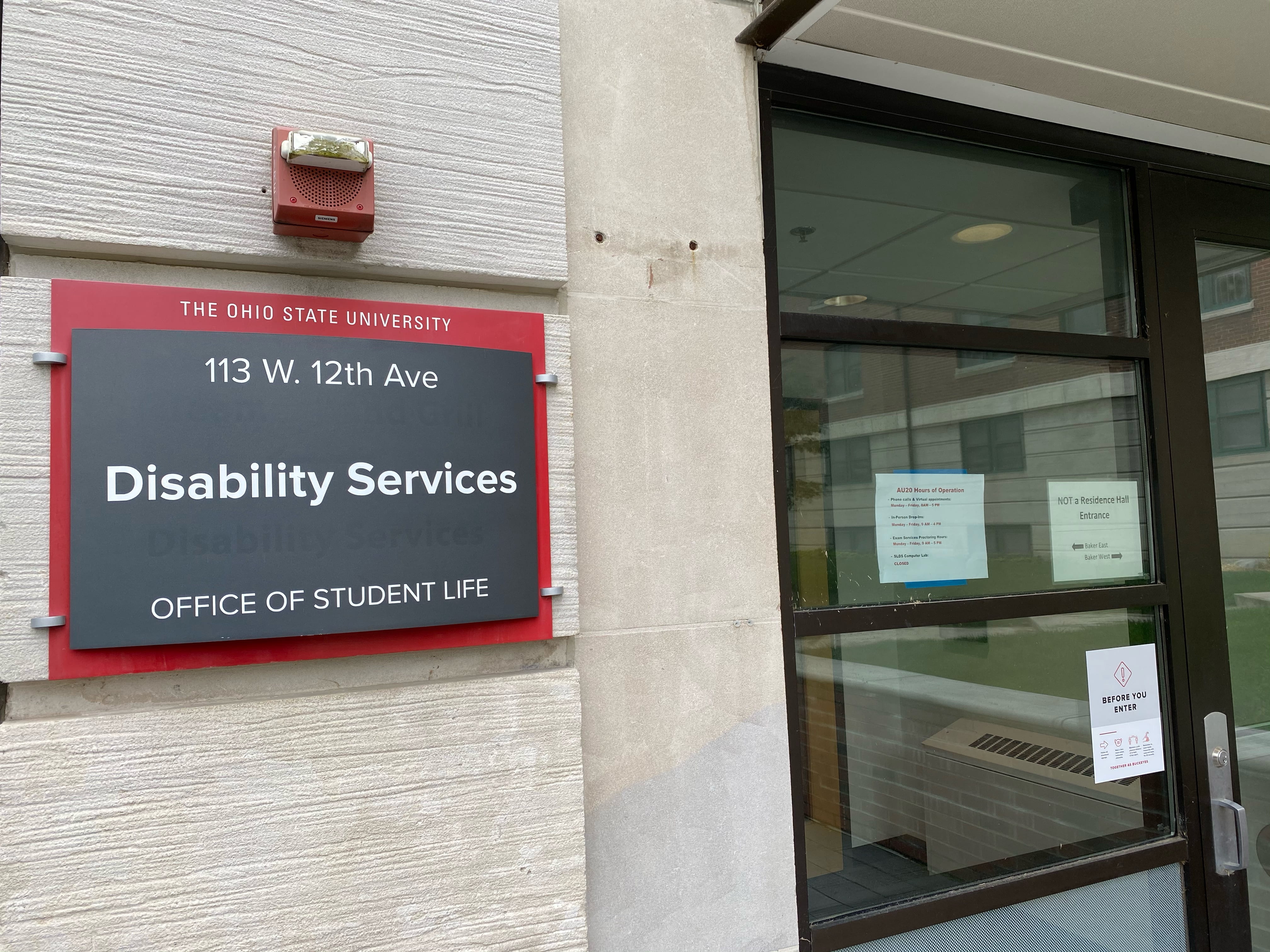
When seeking a new job, disclosing a disability to a potential employer can add another level of stress. Knowing how, why and when to disclose is essential. Credit: Mackenzie Shanklin | Photo Editor
Interviewing for jobs and internships is already an anxiety-ridden process, but there can be an added level of stress when worrying about how and when to disclose a disability to a potential employer.
Experts say it’s essential for students to understand how, why, when and when not to tell employers about a disability.
Kari Grafton is a vocational rehabilitation counselor at the Opportunities for Ohioans with Disabilities Agency and has worked with students at Ohio State since 2019 at Student Life Disability Services. Grafton shared a video from the Office of Career Management at Ohio State that detailed three steps for individuals considering disclosing a disability.
Do I need to disclose a disability?
The first step is to determine the individual’s need for disclosure — they may not need to disclose if they can navigate the hiring process and perform duties without accommodations. However, telling an employer about a disability may be helpful in the event accommodations are unable to be made to meet equal employment access standards.
When should I disclose a disability?
The second step is choosing when to disclose it. Depending on the individual’s needs, they may feel comfortable confiding before or during an interview or when receiving an offer. Disclosing is a personal choice, so an individual should weigh the pros and cons to decide what is comfortable for them.
How should I disclose a disability?
The third and final step is how the individual will share the disability with the employer. Typically, it would be disclosed to those involved in the interview or application process. A disclosure script is recommended and should include a brief description of the individual’s disability, emphasis on job-related skills, any limitations that would interfere with job performance and suggestions for accommodations.
Grafton said in general, a good rule of thumb is if an individual needs accommodations for the position, it’s essential to ask at the end of the interview about the culture regarding people with disabilities and if the employer can accommodate them. If an individual doesn’t need an accommodation for their disability and their performance won’t be negatively impacted, then it doesn’t have to be disclosed, Grafton said.
“You should request an accommodation when you know there’s a workplace barrier preventing you, due to your disability, from competing for a job, gaining equal access to the benefit of employment,” Grafton said. “It’s better to request one before your job performance suffers.”
Barbara Harvey, a career coach at the Center of Professional Success at Ohio State, said it is important for those who do not have disabilities to be conscious of this process as well.
“Whether someone has a disability or not, it’s important to be aware of the things people don’t say out loud, and it’s important to be sensitive to that,” Harvey said. “As opposed to assuming that everyone is ‘normal’ and can do everything in the same capacity because people don’t disclose.”
Harvey said the Opportunities for Ohioans with Disabilities Agency helps people with physical, intellectual, mental health and sensory disabilities to get a job or keep the job they have now. The agency can help someone with a disability access what type of work is right for them, what is less stressful and can be managed carefully, and jobs that will allow them to work despite their disabilities.
More information on disability disclosure to a potential employer can be found on Ohio State’s Student Life Disability Services website.


